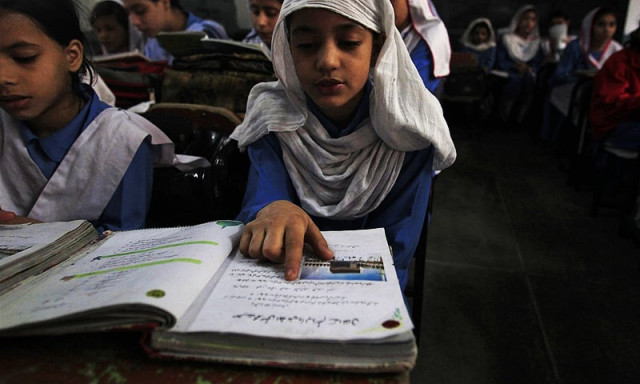'Youth need better opportunities'
UN representative says Pakistan has changed a lot since 1990s

PHOTO: REUTERS
In an interview with The Express Tribune on International Youth Day, the senior UN official said even though Pakistan had made great progress over the years there was still much to do to ensure employment-oriented education and address inequalities.
“There is lots of energy and creativity among the young people. Great music and theatre is happening in Pakistan,” said Buhne, who has been overseeing UN development and humanitarian work in the country since September 2015. He was also in Pakistan working as UNDP Assistant Resident Representative from 1990 to 1995. Buhne said Pakistan had changed a lot since his first stint here: “Pakistan has changed a lot during those times. There is greater degree of youth energy, Coke Studio, and all sorts of things like that. A lot more happening in the media. I think it’s also changed in the sense that there is a lot of wealth. Many more houses, much more infrastructure, than I when I was here before. There are many more universities now.”
Education gala, sports festival mark Independence Day celebrations in Balochistan
However, the UN representative said the country had made no substantial progress in some areas. “But then some things that you might not want to stay the same have remained the same. For example, there are still so many young people who are out of school. You still have extremely high maternal mortality rates. Population growth rate is about as high as it was when I was here before.” In some other areas like nutrition, he observed that the situation was worse than before, adding that 45 percent of the country’s population was stunted.
He said UN agencies working in Pakistan were focusing on young people’s needs. “Because a lot of these problems we talk about are more extreme among young people. At the same time, there are greater opportunities for young people.”
Buhne said the UN was involved in a number of humanitarian and development programmes in Pakistan. The UN agencies are doing different sorts of work in all four provinces as well as Fata G-B, and AJK. He said the single largest concentration of UN staff outside Islamabad was in Peshawar, followed by Quetta.
Education and employment
The UN-RC said there was a need to work on both quantity and quality side of education in Pakistan. “The quantity issue is that you still have some parts of the country where people don’t have access to education. 34 per cent children of primary school age are out of school, and only 20 per cent attain secondary education. So there is the issue of quantity.
“But it’s also an issue of quality, because you do have a lot of students coming out now but they are not necessarily coming out with the skills they need. So there is a need to improve quality of education. For example, AJK has nearly 100 per cent enrolment in education, however it has unemployment rate that is two or three times as high as rest of the country. Partly because the quality of education just isn’t up to it. While everyone is enrolled, the people coming out don’t really have the skills to get into the labour market.”
Encourage innovation
The UNRC said there was a need for encouraging innovation among the youth. “Historically, for various reasons Pakistan has been among the countries with the lowest level of innovation. But at the same time we have examples in our UN programmes particularly UNIDO where there was a competition on clean energy and Pakistani innovators actually won the world championship in it.
Published in The Express Tribune, August 13th, 2017.



















COMMENTS
Comments are moderated and generally will be posted if they are on-topic and not abusive.
For more information, please see our Comments FAQ